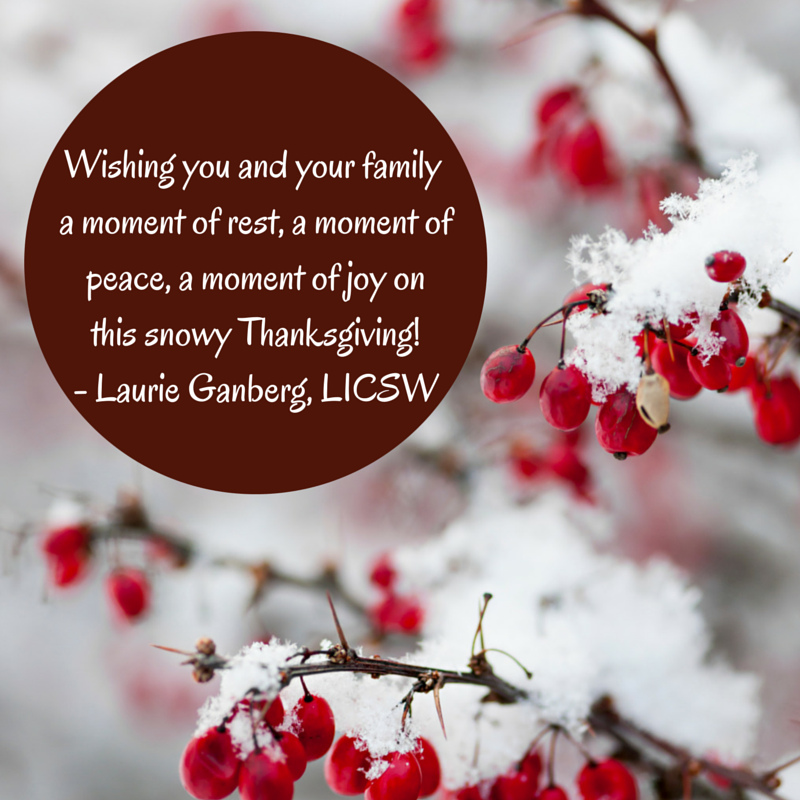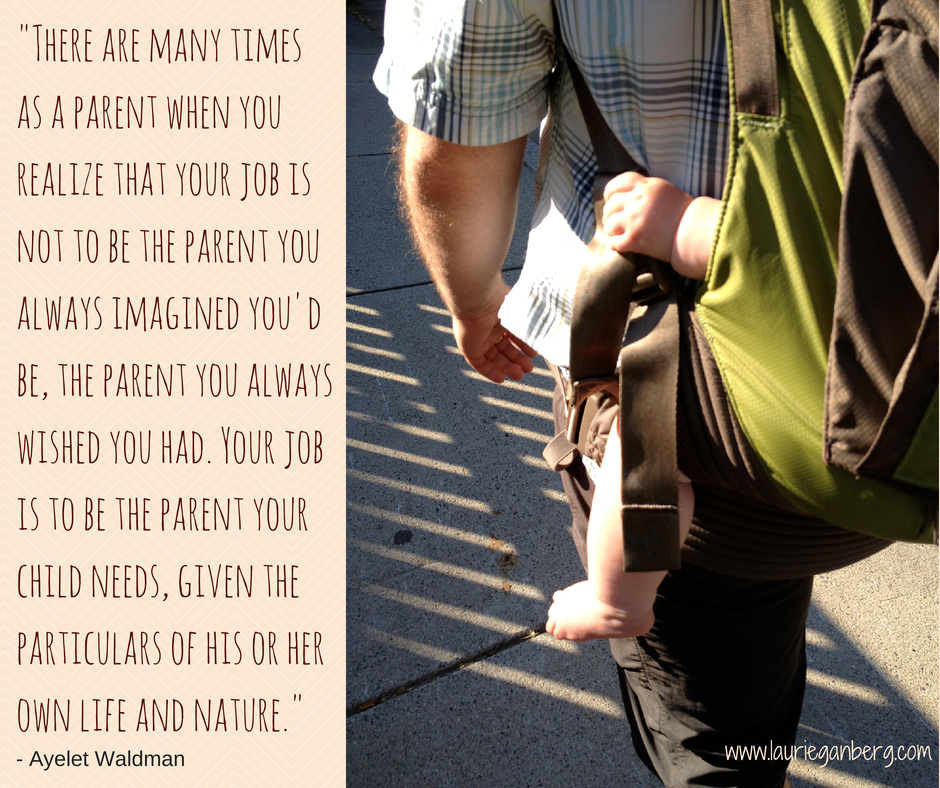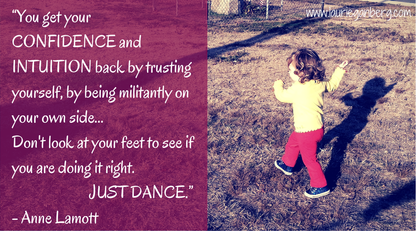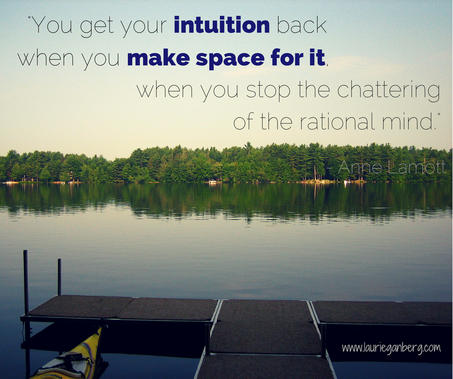|
Sleep. It's the hot topic whenever parents of infants gather - how long is your baby sleeping? How much sleep are you getting? Whatever those numbers are, it's never enough. And the advice about sleep can be laughable: "Sleep when the baby sleeps? What about wanting to shower or eat something more than a handful of almonds or needing to care for my non-napping older child?" Plus, advice about creating good sleep hygiene (habits and environment that promote sleep) just doesn't usually work for new parents: "reserve the bed just for sleep or sex - what about breastfeeding, or changing a diaper, or rough-housing with your toddler?" So, if you need more ideas for how to actually get to sleep or stay asleep with a new baby, read on. First off, prioritize sleep. Doula and life coach, Maria Dolorico of A Mom is Born recently wrote about this need to make sure you "sleep any way and any time you can." It really can make a world of difference to your mood to get a stretch of a few hours of uninterrupted sleep. If you have, are at risk of, or wonder about postpartum emotional complications (anxiety, depression, OCD, adjustment stress), then it's even more important to make sure you're sleeping. And for an excellent discussion about sleep management, breastfeeding, and postpartum depression, please see these two posts on Postpartum Progress.
Here are my tips* for sleeping:
If it’s been more than 24 hours since you last slept, or you find yourself consistently unable to sleep when the baby is sleeping because of fear, worry, or sadness, please talk to someone: your OB or midwife, or your child’s pediatrician are good first calls to make. You can also contact Postpartum Support International for help finding a specialized therapist. *The "advice" caveat: I'm just another person on the internet making suggestions. Take what works for you, and leave the rest. And when you can, try to tune into what you think will help you. In the meantime, I hope this helps you get some more rest! Feel free to share strategies that helped you get through the worst of the sleep deprivation in the comments. I feel privileged to work with the clients I see each week and grateful for the community of other therapists, birth & lactation professionals, social workers, educators and more of which I'm a part.
Thanksgiving can be a challenging day due to high expectations, family dynamics, and grief and loss which can seem magnified during this and other holidays. Setting boundaries, tuning back into your breath, and asking for what you need can help. So this Thanksgiving day my wish for you and your family is that you have a moment of rest, a moment of peace and a moment of peace.  The birth, the baby gear, the dreams about what the baby is going to look like, lists of baby names, the plans for what you hope your family will do together...these are the thoughts that parents-to-be typically mull over. Time is spent picking a pediatrician and getting lost in a vortex of research about strollers or daycares or diapers. If you're pregnant, maybe you take a childbirth education class. Perhaps an infant CPR class. You're probably not thinking so much about how to take care of yourself and your relationship post-baby. But maybe you should be. Elly Taylor writes in Becoming Us: "As becoming a family gets closer, most couples are so preoccupied with the practicalities of parenting-to-be and the prospect of birth is so huge, it's hard to focus on anything else. But as you both anticipate bonding with your new baby, be aware that the bond between the two of you is equally important -- and it supports your baby, too." While there are usually totally blissful, breathtaking moments in early parenthood, there are also usually a lot of dirty, lonely, back-breaking moments. And there are some common hurdles that come up for new partners-turned-parents during these early weeks and months: communication problems, managing grandparents or in-laws, and emotional adjustments.
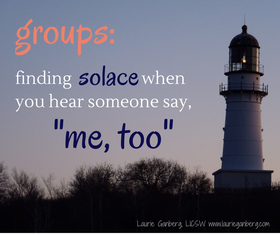 For the first time mother, a new moms group can be an anchor during long days of on-demand feedings and unpredictable naps. It's a commitment outside the house. No one cares if there's spit up on the baby's (or your) outfit. And you can find reassurance that others are going through the same challenges, while hearing from the experienced moms of babies a few months older that it does in fact get better - or at least change. Groups combat the stir-crazy. When your mind immediately imagines getting into an accident every time you put your baby in his car seat; when the pure physical ache of grief floods you each time you try to stand up; when you are facing yet another roller coaster month of hope and despair and anger; when you can't stop yourself from yelling at your child you can feel enveloped in a fog of isolation.
For these individuals dealing with postpartum emotional complications, loss, infertility, parenting challenges—and so many more issues—a support group can be a lifeline. The mere act of being in a room with others fights that isolation. In a group, you hear that others have said/thought/felt/done similar things. They nod, they pass the tissues, they laugh with you, and their eyes tear up because they recognize your story. Sometimes you have the perfect resource or a "been there done that" to share that helps someone else. Sometimes you just want to go to report a great success. You can leave a support group more confident, less alone, with a tiny bit less stress, with an idea to implement, simply lighter after a good cry or a vent or a laugh. You can find solace in a group. Resources:
I recently announced a new group that I'm running at First Connections in Concord. It's a 6-Saturday group and the intention was to schedule a group on the weekend to offer something for parents who've returned to work (or who have always been working outside the home). So, I called it a "Working Parent Group." But, I realized that just perpetuates artificial divisions between parents who work outside the home or at home or stay home or work part-time or some combination, when the goal of the group is to actually make connections among parents! So, I edited how I describe the group here on my website. And this is what parenting is often about: doing your best, recognizing when you've made a mistake, and then fixing it. Certainly not what I imagined parenting to be! So, I encourage you to connect with other parents - at one my groups, or a playgroup, or other support group in your area. In the Boston area, we're lucky to have a plethora of options. I often share other groups and resources on my Facebook page - connect with me there!
So, I promised to come back to the idea of intuition, how to find it and stick with it. Because, while it may feel easier to "stop the chattering mind" in order to make space for intuition in solitude, most of us aren't parenting in a peaceful, zen place away from all meddling, well-meaning voices that feed the rational mind's desire for a plan: a promise of steps to follow to succeed in raising this baby/toddler/teenager seeking - messily, noisily, and sometimes inconveniently! - to get their needs met. So, what then? Here are three things to help tap into your own intuition:
And lastly, just a word about posts on the internet - including this one! If something I've written here resonates, fantastic. If it doesn't land well, that's ok. I strive to write the way I approach my private practice: from a supportive, nonjudgmental place. I hope you "take what works and leave the rest" from my writing and from all the rest of the internet, too! It's not easy to find your inner voice, let alone trust it, in the early days of parenthood. Newborn cries, hours of sleeplessness, well-meaning advice from family, unsolicited words from strangers at the store; all these conspire with the magnitude of caring for your baby when he is at his most vulnerable.
The pull of blogs, books, and experts who can give you a manual and tell you what steps to follow to be the best parent is hard to resist. And if you're up anyway at 3:00am, it's easy to start googling developmental milestones and parenting practices, second-guessing what your instincts are telling you. In Bird by Bird: Some Instructions on Writing and Life, Anne Lamott (one my very favorite authors) wrote: "You get your intuition back when you make space for it, when you stop the chattering of the rational mind. The rational mind doesn't nourish you. You assume that it gives you the truth, because the rational mind is the golden calf that this culture worships, but this is not true.” That's the thing. If I heard new moms saying that they had found some peace and calm in their internet searches, I'd say, "Fine! Go for it!" But most often, fear, inadequacy, and anxiety drive this search for answers and simply multiply, leading to more sleeplessness, worry, and isolation. So, what can you do? How do you make space for your intuition? It certainly seems easier when we're on vacation on a peaceful lake in the middle of nowhere, but how do we cultivate that same space in our regular day-to-day lives? I'll share more thoughts tomorrow! 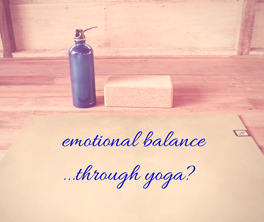 Last weekend, I was at a workshop with Bo Forbes entitled "Yoga for Emotional Balance: Simple Practices to Help Relieve Anxiety & Depression." To be honest, I'm not entirely sure yet what and how I might incorporate the workshop into my own life and into my clinical practice, but I wanted to share some initial thoughts. There were some ideas which seemed relatively straightforward:
These ideas fit with my frameworks for depression, anxiety, trauma, and the nervous systems. And they seem relatively accessible to share with the women, men, and adolescents with whom I work. Certainly any practice that encourages people to inhabit their body with conscious and compassionate attention is beneficial - especially when I think about women who've experienced birth traumas or losses, clients with chronic pain, or adolescents with body image struggles. Other aspects of the training elicited more bewildering discomfort. But to paraphrase Forbes: awkward is good; awkward is where the learning happens. So, I'm still mulling over interoception (briefly, this means the sense of the physiological condition of the body), the enteric nervous system in the gut, and how shifting visceral (or, body-based) resilience to change through slow, deliberate movement actually affects emotional resilience. I'm excited to integrate some of these concepts in my learning and practice. I think that there are also some valuable connections to make with new research about the role of inflammation, depression, and the consequences for perinatal mental health. And I'm feeling quite grateful for the opportunities that I have to go and take workshops outside my comfort zone and learn from other communities! Here's a quick little video of Bo Forbes talking about the nervous system - not from the training I went to, but it gives a sense of her framework.
I'd love to hear your thoughts in the comments, particularly if you're a clinician incorporating more body-based interventions in your practice. 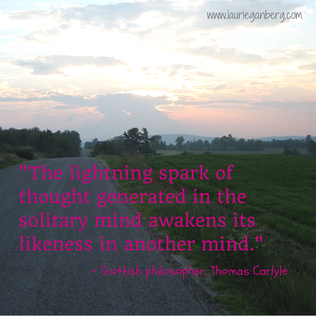 One of the things that I always heard about private practice before opening mine is that it can be isolating work. But, I haven't found that to be true. I've relished the opportunity to meet with other practitioners: sleep consultants, chiropractors, therapists, midwives, doulas, lactation counselors, massage therapists, acupuncturists. I've been challenged, shared ideas, and brainstormed some exciting future goals with these friends and colleagues. The conversations that I've been a part of in the wake of the NY Times maternal mental illness articles (see my reaction to those articles here) about how to expand screening for depression and anxiety for women in pregnancy and throughout the postpartum year; how to facilitate better connections to treatment; and how to expand the innovative programs that are being developed here in MA to reach more women have been especially invigorating. I'm in the process of developing a couple of exciting projects in collaboration with some of those other practitioners to expand what I'm able to offer women and families in the Cambridge area. I'll be sharing more information as it all gets finalized! What are you excited about in your professional life? What partnerships and collaborations energize you? 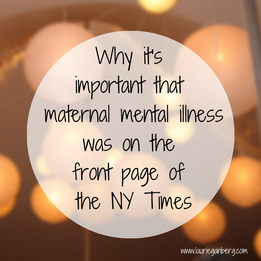 On 6/16/14, the NY Times published two articles on maternal mental health. This was above the fold, front-page media coverage for the emotional complications that mothers face. Let's talk about the cover story: 'Thinking of Ways to Harm Her': New Findings on Timing and Range of Maternal Mental Illness. First, a quick point about language. I don’t love that the headline led with the attention-grabbing reference to intrusive thoughts of harming a baby. And the article fell into the pattern of referencing either “postpartum depression,” which it makes the point of saying doesn’t accurately encompass the range of experiences, or “maternal mental illness,” which can come across as very medical. But the alternatives, like "perinatal mood disorders" or "emotional complications" have their limitations as well. So, I try to use a range to best speak to women's experiences. But back to the article... Women and families shared their experiences with depression, intrusive thoughts, and anxiety, demonstrating incredible vulnerability and courage. Writer Pam Belluck discussed the new research that backs up what clinical experience tells us: that emotional complications often start in pregnancy and are not easily identified as "just” depression, but frequently include overlapping features of depression, anxiety, obsessive compulsive disorder, and bipolar disorders. She touched on some of the factors that are associated with these experiences, the prevalence, and the range in timing when symptoms arise (during pregnancy and throughout the postpartum year). And there was mention of treatment: medications, therapy, support groups, and help to address impacts on bonding and attachment, though I wish there was more exploration of what treatment looks like for women and families. Belluck highlighted efforts to increase screening for postpartum mood disorders and the frustrating fact that more screening does not necessarily mean improved health: "A study in New Jersey of poor women on Medicaid found that required screening has not resulted in more women being treated...the law educated pediatricians and obstetricians, but did not compensate them for screening." In Massachusetts I am thankful that in Massachusetts we are taking some steps to increase screening. A 2010 law authorized the Department of Public Health to "develop a culture of awareness, de-stigmatization, and screening for perinatal depression." But changing a culture and eliminating stigma take time. Even if they are given a questionnaire, new moms often hide the truth of how they're feeling from their doctors and pediatricians out of shame and fear of judgment. And an OB who sees a woman for a mere 15 minute follow up appointment at 2 or 6 weeks postpartum may feel reluctant to ask further questions because they're unsure of where or to whom they would even refer her. The Massachusetts Child Psychiatry Access Project (MCPAP) aims to address some of these barriers by expanding its focus to include maternal mental health. Starting next month, doctors will be able to call a toll-free number to speak to a care coordinator to help find a mental health provider for their patient. MCPAP for Moms will be a great resource for doctors, but what about for mothers, their partners and families, and other providers? Granted there are some resources like the Massachusetts Postpartum Support International warmline (866-472-1897) and regional and community task forces creating systems of care for maternal mental health, but there are still gaping cracks women and families can fall through. What I’m most hopeful about in Massachusetts is a relatively small pilot project focused on preventing postpartum depression by putting postpartum doulas who can provide support and screenings in a few community health centers. A friend and colleague, Divya Kumar, Sc.M., is a certified postpartum doula and certified lactation counselor who works in one of these community health centers. Excited about the integration of services to address maternal health, Kumar says, “We need to change the way we do this...it's not just about preventing postpartum depression, but it's about promoting postpartum wellness and overall emotional health in new moms.” When a new mom brings her baby in for his well baby visit, Kumar is able to spend time with her helping with breastfeeding challenges, screen her for postpartum depression, and if needed, refer her to the mental health clinician down the hall who can see her that same day. And this is true even if the mother is not a patient of the health center. Plus, the community health center has midwives who also provide prenatal care so there’s the possibility for connection during pregnancy – important for the women who experience depression and anxiety during pregnancy and/or those who have a known mental health history. "Timely screening for perinatal emotional complications can save lives—especially in a community health center lucky enough to have comprehensive postpartum support AND mental health services right under one roof. [I am] so thankful for this pilot money and for centralized, accessible services," says Kumar, "We are offering services to families where the baby is seen at the clinic even if mom is not...We have caught a couple cases of PPD that way--huge, huge victories!" Until this pilot project can be replicated to reach more women, a woman (or someone in her family) needs the knowledge to recognize that what she's feeling isn't just new mom exhaustion, the courage to ask for help, and the resources to be able to find/afford/get to treatment. On top of all that, treatment must be specialized, connected to community-based supports, and welcoming. Dr. Kozhimannil, quoted in the article, speaks to the barriers: "There are also not enough treatment options…If a woman comes with a baby, and it’s a place treating people with substance abuse or severe mental illness, she may be uncomfortable.” (And yet, let's not forget that these are not mutually exclusive groups). When everything falls into place, it works. Timely, accessible treatment can help. As Jeanne Marie Johnson was quoted saying, once she received help, “It’s just a whole world of difference.” When I was looking for my office space, I thought about what it would be like for pregnant or new moms coming to see me. I looked for an office with an elevator, easy bathroom access, and parking. A chair that rocks for a breastfeeding mother, a hidden box of toys to distract an infant, water or a cup of tea to offer some comfort and hydration: these are all small ways I hope that the environment welcomes pregnant women and new mothers. And my connections to other resources—psychiatrists, acupuncturists, sleep consultants, lactation counselors, groups—form the foundation of a potential community of support for isolated new mothers and families. Ultimately, national media coverage of perinatal emotional complications like these NY Times articles helps to decrease isolation and stigma. I hope that this leads to more screening, more treatment, and more health for mothers and families. A bow of gratitude to the women who shared their stories and to Pam Belluck for writing these pieces. What's your take on the article? Please share in the comments. 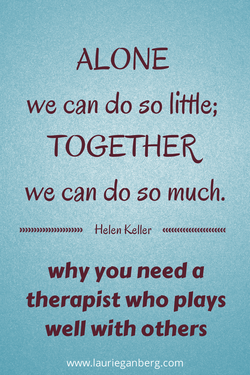 In 2007, Massachusetts implemented the Children's Behavioral Health Initiative (CBHI) in response to a class action lawsuit on behalf of Medicaid-eligible children with serious emotional disturbances to provide improved screening, evaluation, and access to behavioral health services for youth up to age 21 with MassHealth. One of the services created was Intensive Care Coordination (ICC) to "help get all the adults in your child’s life to work together." In my previous work as an in-home family therapist, mobile crisis intervention supervisor, and point of contact for families entering the CBHI system, I can tell you this is one of the biggest challenges and most important factors in providing effective care that wraps around and buoys a child and the family. While some families I worked with had a dedicated Intensive Care Coordinator, others relied on the family therapist or outpatient therapist to provide the coordination. Too often, it fell on a parent who was already approaching or well past the stage of burnout trying to decipher acronyms and navigate an incredibly complex system all while dealing with anxiety about finding help for their child. Throw in a doctor, a teacher, a special education services coordinator, an occupational therapist, or a mentor and it's not hard to imagine the benefit of making sure everyone's talking to each other. In my private practice, I see children and families, as well as individual adults, and I always consider who else is working with whoever is sitting with me in my office. Together, we review the pros and cons of signing releases allowing me to communicate with those other providers. Here are some common themes that arise:
One of my strengths is looking at the bigger picture and navigating larger systems. When we think together about who is currently involved in your life and how you'd benefit from working with other providers, we have the best chance of efficiently meeting your goals, but it's critical that appropriate communication happens to ensure everyone on your team is working together. Do you have any success stories or cautionary tales of collaboration among providers? Therapists, what makes you hesitant or excited to take on the role of coordinating care? Please feel free to share your thoughts in the comments. 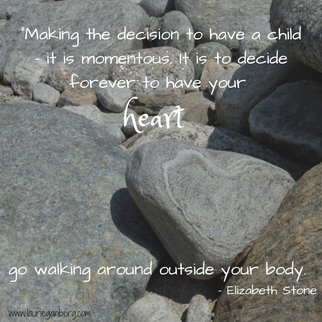 There are a lot of surprises when it comes to babies: how much noise tiny newborns can make; the volume of laundry; how many thousands of photos of a sleeping baby can end up on your phone/camera. But I hear from a lot of new mothers that they are taken aback by the anxious thoughts. And then they start worrying about how much they're worrying. It's a tough, but easy, spiral to fall into. Any of this sound familiar?
 Here are three strategies to help get you out of your head:
However, if strategies like these aren't cutting it; if you're having panic attacks; if the constant stream of thoughts in your head is keeping you awake even while the baby's asleep; if you're avoiding activities like bath time or not going particular places because of fear, you might need some extra support to feel better. Between 10-15% of women in the postpartum period will experience depression or anxiety. That's nearly 1 in 6. In my experience with new moms, the symptoms of anxiety are some of the most common. So here's what I want to make sure you hear: It's not your fault - it's not because of anything you did or didn't do. You are a good mother. And the even better news? You can feel like yourself again. How? First off, if the thought of "doing" anything else feels overwhelming right now, enlist help. Your partner, a friend, a family member can take care of the logistics. Unsure how to ask for help? Email them this post. If a new mother sent this to you, tell her you love her, she's a good mother, and you will help her with these next steps.
Have you made it to the other side of postpartum anxiety? What helped you? Please share in the comments. "Stone Heart" (http://bit.ly/1onQYe5) by Irene Grassi is licensed under CC BY-SA 2.0. |
Therapy, Groups, Supervision, Consultation, Training in Seattle, WA and online in Washington state
Laurie Ganberg, LICSW, PMH-C (#LW60673320) ~ Specializing in Perinatal Mental Health, Trauma, & Fat Liberation
Now practicing through Fiddlehead Therapy, PLLC with online services and in person in Mountlake Terrace, WA
Home | Privacy | Contact | Zoom Link
© 2019-2024 All rights reserved
Laurie Ganberg, LICSW, PMH-C (#LW60673320) ~ Specializing in Perinatal Mental Health, Trauma, & Fat Liberation
Now practicing through Fiddlehead Therapy, PLLC with online services and in person in Mountlake Terrace, WA
Home | Privacy | Contact | Zoom Link
© 2019-2024 All rights reserved


